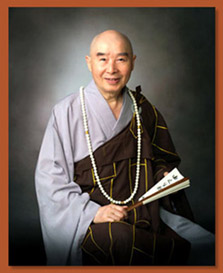Oseola McCarty's lined, brown hands, now gnarled with arthritis, bear mute testimony to a lifetime spent washing and ironing other people's clothes.
Less evident is how this quiet, 87-year-old black woman came to donate $150,000 to The University of Southern Mississippi.
"I want to help somebody's child go to college," Miss McCarty said. "I just want it to go to someone who will appreciate it and learn. I'm old and I'm not going to live always."
McCarty's gift establishes an endowed Oseola McCarty Scholarship, with "priority consideration given to those deserving African-American students enrolling at The University of Southern Mississippi who clearly demonstrate a financial need."
"This is just extraordinary," said Southern Miss President Aubrey Lucas. "I don't know that I have ever been as touched by a gift to the university as I am by this one. Miss McCarty has shown great unselfishness and sensitivity in making possible for others the education she never had."
Bill Pace, executive director of the Southern Miss Foundation, which will administer McCarty's gift, said, "This is by far the largest gift ever given to Southern Miss by an African American. We are overwhelmed and humbled by what she has done."
Miss McCarty's gift has astounded even those who believe they know her well. The customers who have brought their washing and ironing to her modest frame home for more than 75 years read like the social register of Hattiesburg. She has done laundry for three generations of some families. In the beginning, she said, she charged $1.50 to $2 a bundle, but, with inflation, the price rose.
"When I started making $10 a bundle -- I don't remember when ... sometime after the war -- I commenced to save money," she recalled. "I put it in savings. I never would take any of it out. I just put it in. It just accumulated."
Actually, she started saving much earlier. Miss McCarty, seated in her small, neat living room -- the linoleum floor gleaming, a spotless pink bedspread pinned carefully over the sofa -- related her story quietly and matter-of-factly.
Born in Wayne County, Miss., on March 7, 1908, she was raised by her mother, Lucy, who moved to Hattiesburg when Oseola was very young. Her mother, she recalls, worked hard to support her young daughter.
"She cooked for Mr. J.S. Garraway, who was Forrest County Circuit Clerk, and ... she would go to the schoolhouse and sell candy to make money. She would leave me alone. I was scared, but she didn't have no choice. I said then that when I could, I would save money so I could take care of my grandmother."
Young Oseola went to school at Eureka Elementary School. Even as a young child, she worked, though, and her savings habit started early.
"I would go to school and come home and iron. I'd put money away and save it. When I got enough, I went to First Mississippi National Bank and put it in. The teller told me it would be best to put it in a savings account. I didn't know. I just kept on saving."
When Oseola was in the sixth grade, her childless aunt had to go to the hospital, and, McCarty said, "I had to go and wait on her. When she came out of the hospital, she couldn't walk, and she needed me."
McCarty never returned to school. "All my classmates had gone off and left me," she said, "so I didn't go back. I just washed and ironed."
Over the years, she put money into several local banks. While banks merged and changed names and management, McCarty's savings grew.
Her grandmother died in 1944, her mother died in 1964, her aunt died in 1967, "and I've been havin' it by myself since then," she said. Her mother and her aunt each left her some money, which she added to her savings. In 1947 her uncle gave her the house in which she still lives.
Bank personnel, realizing that McCarty was accumulating sizeable savings, advised her to put her money into CD's, conservative mutual funds and other accounts where it would work for her.
Meanwhile, McCarty washed and ironed and lived frugally. She has never had a car and still walks everywhere she goes. She shows a visitor the shopping cart she pushes to Big Star, more than a mile away, to get groceries. For the visitor's benefit, she turns on the window air conditioner bank personnel only recently persuaded her to get.
Nancy Odom and Ellen Vinzant of Trustmark Bank have worked with McCarty for several years, not only helping her manage her money but helping look after her personally. It was they who helped her get the air conditioner. They also were concerned about what the future held for her.
"We both talked with her about her funds and what would happen to her if something happened," said Odom. "She knew she needed someone to take care of her."
McCarty, who never married, said, "After my aunt died, I began to think, I didn't have nobody. I began to think about what to do with what little I had. I wanted to leave some to some cousins and my church. But I had been thinking for a long time ... since I was in school ... I didn't know how to fix it, but I wanted to give it to the college (Southern Miss). They used to not let colored people go out there, but now they do, and I think they should have it."
Odom and Vinzant referred Miss McCarty to Paul Laughlin, Trustmark's assistant vice president and trust officer.
"In one of our earliest meetings, I talked about what we could do for her," Laughlin said. "We talked about providing for her if she's not able. Then we turned naturally to what happens to her estate after she dies.
"She said she wanted to leave the bulk of her money to Southern Miss, and she didn't want (anybody) to come in and change her mind. I called Jimmy Frank McKenzie, her attorney -- she's done laundry for him for years -- and he talked to her. He made sure it was her idea. Then I met with her to let her decide how to divide her money up."
McCarty said, "Mr. Paul laid out dimes on the table to explain how to divide it up."
Laughlin said, "I got 10 dimes (to represent percentages). I wrote on pieces of paper the parties she wanted to leave her money to and put them on the table. Then I asked how she wanted her money to be split up. She put one dime on her church and one each for several relatives. Then she said she wanted the rest -- six dimes -- to go to the college. She was quite definite about wanting to give 60 percent to Southern Miss. To my knowledge, she has never been out there, but she seems to have the best of the students in mind. The decision was entirely hers."
"I just want the scholarship to go to some child who needs it, to whoever is not able to help their children," Miss McCarty said. "I'm too old to get an education, but they can."
McCarty signed an irrevocable trust agreement stating her wishes for her estate and giving the bank the responsibility for managing her funds.
"Mr. Paul gives me a check, and I can go get money anytime I need it. My lawyer gave them permission to take care of me if something happens to me."
Laughlin said the bank normally keeps such transactions in strictest confidence, but because of the uniqueness of McCarty's story, he asked for her permission to make it public.
"Well, I guess that would be all right," she said with her typical calm acceptance.
"She seems wonderfully at peace with where she is and who she is," Laughlin said.
McCarty's arthritis in her hands forced her to retire from washing and ironing in December 1994, at the age of 86. Now she spends her days cleaning house, and she still walks everywhere she goes. But she said, "If I ever get able to, I want to go back to work."
She is taking others' excitement over her gift with the same quiet grace that she has taken all the bad and good that have come into her life.
"I can't do everything," she said, "but I can do something to help somebody. And what I can do I will do. I wish I could do more."
http://www.usm.edu/pr/oola1.htm
(To read more about Miss Oseola McCarty, please see http://www.usm.edu/pr/oolamain.htm)
 March 13, 2009
March 13, 2009 
